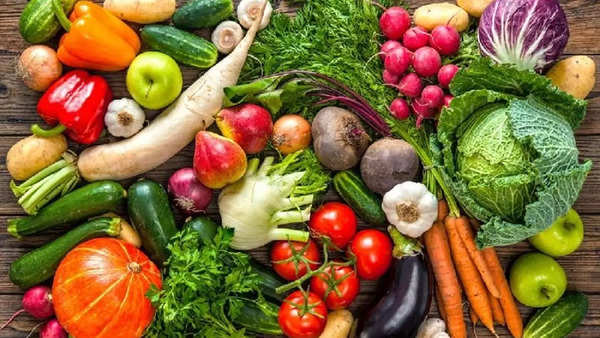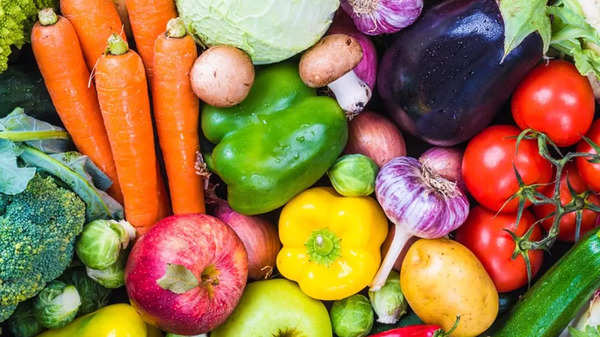Spinach and other leafy vegetables
After buying leafy greens, give them a vinegar rinse to eliminate bacteria and fungi. This easy step ensures they stay crisp and fresh for a longer duration in the refrigerator.
Carrots, Potatoes
Store root vegetables in a cool, dark place like a pantry. Ensure they have proper ventilation to prevent sprouting and maintain their freshness. Refrigerate carrots in a perforated plastic bag to maintain their crispness. For an extra-long shelf life, consider storing them in a container filled with water. Store potatoes in a cool, dark place, preferably in a paper bag. Avoid placing them near onions, as both release gases that can accelerate spoilage.

Strawberries, Blueberries
Keep berries away from ethylene-producing fruits like apples to slow down the ripening process. Store them in the refrigerator and only wash them right before consumption. Remove any damaged or overripe strawberries to prevent the spread of mold. Store them in a single layer in the refrigerator to maintain their shape and freshness. Freeze excess blueberries for use in smoothies or as a tasty addition to desserts. Spread them in a single layer on a tray before transferring them to a freezer bag.
Tomatoes
Tomatoes are ethylene producers. Keep them separate from other vegetables to prevent premature ripening. Store them at room temperature until fully ripe, then transfer them to the refrigerator.
Bell Pepper
Chop or slice bell peppers and store them in airtight containers to maintain their crispness. Keep them refrigerated for easy access in various recipes.
Celery
If celery starts to wilt, submerge it in ice-cold water for a few hours to restore its crisp texture. This simple trick revives the freshness of your celery.
Hyderabad man prepares 1200 kg Laddu as offering for Ayodhya’s Ram Temple
Broccoli and Cauliflower
Before freezing, blanch broccoli and cauliflower to preserve their texture and nutritional value. Frozen broccoli and cauliflower make convenient additions to stir-fries and casseroles.
Onions
Onions prefer low humidity. Store them in a cool, dry place, away from other vegetables. Avoid storing them in the refrigerator, as excess moisture can lead to sprouting.
Avocados
Avocados produce ethylene. Keep them separate from other fruits and vegetables until they reach the desired ripeness. Store ripe avocados in the refrigerator to slow down further ripening.
Cucumbers
Keep cucumbers away from fruits like tomatoes, as the ethylene emitted can lead to faster spoilage. Store them in the crisper drawer of the refrigerator for optimal freshness.
Apples
Apples emit ethylene, which can affect neighboring produce. Store them separately or in a designated crisper drawer to prevent premature ripening of other fruits and vegetables.

Lettuce
Store lettuce in a breathable container lined with paper towels to absorb excess moisture. This helps prevent wilting and extends the shelf life of your leafy greens.
Garlic
Store garlic bulbs in a cool, dry place with good ventilation. Avoid keeping them in the refrigerator, as the cold and moisture can lead to sprouting.
Mushrooms
Store mushrooms in a paper bag in the refrigerator to maintain their freshness. Avoid washing them until you’re ready to use, as excess moisture can lead to a shorter shelf life.

